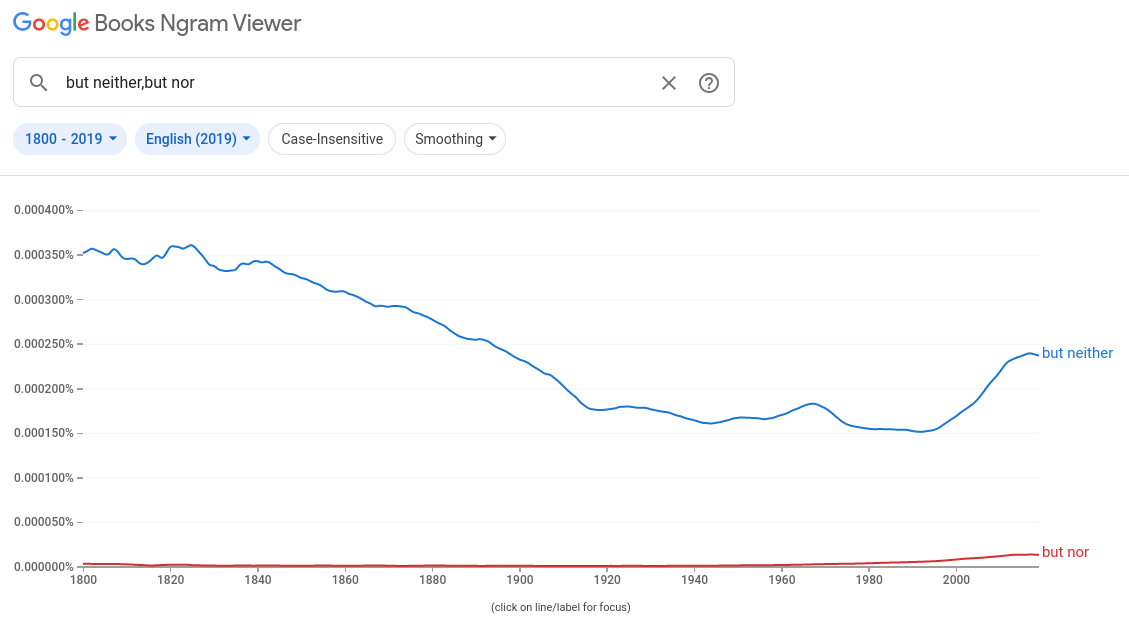I'd agree with @JohnLawler's comment
But neither is the normal use; but nor strikes me as novel, though I don't really know.
This is supported by a query to the Google ngram viewer, which shows that "but neither" is much more common than "but nor" (although the latter seems to be increasing recently):
As another point of comparison, here are some counts from the Corpus of Contemporary American English (COCA):
NEITHER: 74071,. NEITHER: 13370,, NEITHER: 9902,BUT NEITHER3732,; NEITHER: 716NEITHER: 74071,. NEITHER: 13370,, NEITHER: 9902,BUT NEITHER3732,; NEITHER: 716NOR: 88449,, NOR: 27236,. NOR: 11475,; NOR: 1935,BUT NOR: 118
NOR: 88449,, NOR: 27236,. NOR: 11475,; NOR: 1935,BUT NOR: 118This supports the idea that "but neither" is somewhat rare but "but nor" is much rarer.
it supports the idea that
, neitheris common.It also speaks to your other question about whether "nor" can be used at the beginning of a sentence. COCA indicates it often is.
This supports the idea that "but neither" is somewhat rare but "but nor" is much rarer. (It also speaks to your other question about whether "nor" can be used at the beginning of a sentence. COCA indicates it often is.)

